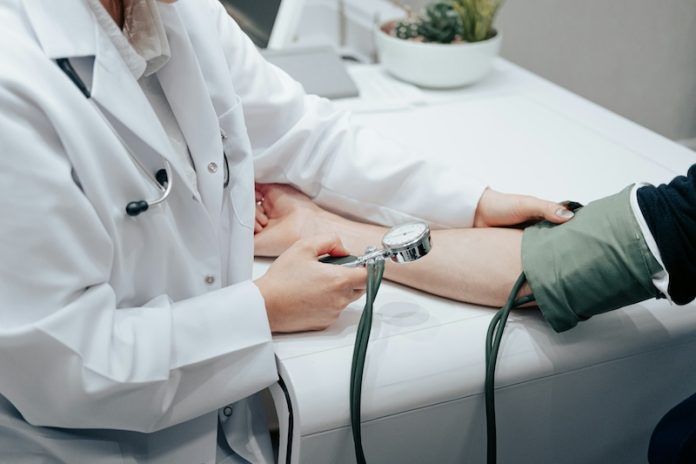
Most of us are used to getting our blood pressure checked while sitting at the doctor’s office. But new research shows that this common method might not tell the whole story. In fact, your blood pressure can act very differently depending on whether you’re sitting, standing, or lying down—and that could make a big difference to your heart health.
This new study was presented at the American Heart Association’s Hypertension Scientific Sessions in 2023. It was led by Duc M. Giao, a medical student at Harvard Medical School. The research team looked at data from more than 11,000 adults to better understand how body position affects blood pressure.
What they found was surprising. While most people had their usual blood pressure checked while seated, some had high blood pressure only when lying down. In fact, about 16% of the people in the study had normal readings while sitting, but high blood pressure when lying flat. This type of “hidden” high blood pressure would go unnoticed with standard testing.
Even more concerning, people with high blood pressure only when lying down had similar risks of heart problems as those who had high blood pressure in both sitting and lying positions. These risks included heart failure, stroke, coronary heart disease, and even early death.
In simple terms, just because your blood pressure is normal when sitting doesn’t mean you’re in the clear. If it spikes when you lie down, you may still be at risk for serious health problems.
Why is this important? Blood pressure is a key factor in heart health. When it’s too high, it forces your heart to work harder, damages blood vessels, and raises your risk of heart disease and stroke. That’s why accurate measurements are so important—especially for people who already have risk factors like diabetes, obesity, or a family history of heart issues.
Doctors usually don’t check blood pressure in different positions, but this study suggests that maybe they should—especially for people in middle age, the group mainly included in this research. It might be time to change the way we test and think about blood pressure.
For people worried about heart disease or stroke, it’s a good idea to ask your doctor if they can check your blood pressure while lying down too. It doesn’t take long, and it could reveal hidden risks that otherwise go unnoticed. It might also be helpful to monitor your blood pressure at home in different positions or even during sleep, if possible.
Understanding how your blood pressure behaves throughout the day and night, and in different body positions, could help you and your doctor manage your health better. It might also explain why some people still have heart problems even when their standard blood pressure tests look normal.
This study challenges the traditional method of checking blood pressure only while sitting. It shows that a more complete approach—including measurements taken while lying down—might give us a better idea of someone’s real heart health.
The key takeaway is that blood pressure is not a fixed number—it changes depending on your position, time of day, and even your stress level. And for some people, important warning signs may appear only when they’re lying down.
For now, this study focused mainly on middle-aged adults. We don’t yet know if the same results apply to older or younger people, but it opens the door for more research. If future studies confirm these findings, medical guidelines for how we measure and monitor blood pressure might need to change.
Until then, if you’re concerned about heart problems—or if you’ve had confusing or borderline blood pressure readings—it may be worth checking it in more than one position. A small change in how your blood pressure is measured could make a big difference in your long-term health.
If you care about blood pressure, please read studies about blood pressure drug that may increase risk of sudden cardiac arrest, and these teas could help reduce high blood pressure.
For more information about health, please see recent studies about nutrient that could strongly lower high blood pressure, and results showing this novel antioxidant may help reverse blood vessels aging by 20 years.
Copyright © 2025 Knowridge Science Report. All rights reserved.



